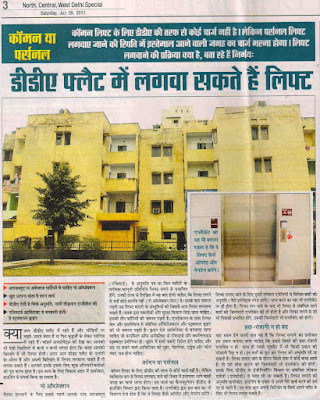Jul 31 2011 , New Delhi
With the recent cases of housing projects turning turtle, experts advise most homebuyers to go through a checklist. Here’s how:
Under-construction means under lens: An under-construction property will invariably come cheaper than a ready-for-possession property. Depending on the stage of construction and also the response that the project has already elicited from other buyers/investors, the rates can be from anywhere between 15-30 per cent lower.
To begin with, if one is buying an under-construction project, the developer’s bona fides and market standing should be carefully researched and verified.
Next, a buyer is entitled to ask for a copy of the project’s drawings, duly stamped by the municipal authorities.
At present, experts advise buyers to check on the option to choose construction-linked payment plans that are usually structured on a project-to-project basis. Next, the buyer should be aware of changes in the original development plan.
“Certain necessary chan-ges are usually permitted and also mentioned in the agreement. Once actual construction begins, there may be grey areas on the blueprint that come to light only later. Sometimes, this may involve new regulations with regards to parking space or other aspects beyond the developer’s control,” said Santhosh Kumar, chief executive officer of operations, Jones Lang LaSalle India.
Use bank intelligence and your lawyer: The process of buying a residential property can be an extremely tedious process because it involves a number of nuances starting soon after an individual identifies a property he or she likes.
The first and most important step to ensure is that there are no disputes on the property or land, whether it is located in an apartment complex or an independent house.
“A few things, which should be checked, are the title papers, in case of an apartment, construction certificate, approvals from the local authorities, clearances from the water works and power and all other necessary legal clearances. Once this due diligence is done to a certain level of satisfaction the homebuyer can proceed to purchase a residence,” explained Akshay Kulkarni, executive director, India, residential services, Cushman & Wakefield.
However, making all these checks may not be easy or, perhaps, even possible for an individual.
Therefore, the best way to ensure that the property of choice is clear of all legal and environmental issues, a good way to approach the same would be through banks. Financial institutions who lend money, usually do the necessary due diligence on the properties before clearing them for loans.
Before both parties sign, the agreement should be vetted by a lawyer to ensure there are no loopholes and at the earliest instance, the agreement should be registered, added Kulkarni.
Past record often an indicator of future: In financial markets, past performance is often no guarantee of the future. But, looking in the past, usually tells us a thing or two about what the future may shape up to be. This is also true for homebuilders.
A prospective buyer should check into the developer’s credibility, past projects and performance and delivery record. There are many instances where the delivery of the home is often delayed by as long as six-12 months.
“Generally, a new builder or developer will offer better prices since his trackrecord will be zero. He has to build reputation. That’s why the price of the home should not be the only criteria to select it. It’s a personal decision whether to invest in a rookie or trust a veteran. While some old developers may also have blemishes, it is important to find out what has led to the delay. Please don’t ask the builder or his officials about delays in other projects. Ask others who don’t have any motive behind seeing the transaction through,” said Sanjay Das, a Kolkata-based financial adviser.
kumarsroy
@mydigitalfc.com



